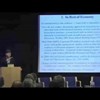lasts
The College-to-Work Transition during the 1990s. Evidence from Sweden
This paper analyzes the time it takes for Swedish college graduates to start a full-time job that lasts for six month or more, the study period being 1991–1999. The results show that the risk of unemp
Never eat a Pigeon with a Pumpkin: a model for the emergence and fixation of unsupported beliefs
This work was presented at the Oxford Symposium on Food and Cookery 2023, and a shortened form of the paper is Chapter 30 in Food Rules and Rituals: Proceedings of the Oxford Symposium on Food and Coo
Katherine Puddifoot: Stress, Trauma, Memory and Injustice: How Policies Wrong Rememberers
Venue: Institutet för framtidsstudier, Holländargatan 13, 4th floor, Stockholm, or online. Research seminar with Katherine Puddifoot, Associate Professor in Philosophy at Durham University. Her recent mnemonic form epistemic injustice

Lorne L. Dawson: Reconceptualizing Lone-Actor Terrorists as Solo Public Mass Murders
Lorne L. Dawson, Professor Emeritus, University of Waterloo, Canada. In public and expert judgements of whether an incident of mass violence by a lone actor is an instance of terrorism or simply mass m
Lorne L. Dawson: Reconceptualizing Lone-Actor Terrorists as Solo Public Mass Murders. An Overview and Analysis of the Research
Seminar with Lorne L. Dawson, Professor Emeritus, University of Waterloo, Canada. Register here > Abstract In public and expert judgements of whether an incident of mass violence by a lone actor is an
We are all prejudiced. You and me both
At the Institute for Futures Studies, we treat discrimination as an import issue for the future. We are studying how it manifests itself, but we are also trying to understand how and why discriminatio

The future of work with Richard Freeman
Last October, Harvard professor of economics, Richard B Freeman gave a lecture on the future of work and the paradox of increased inequality despite higher levels of productivity and teamwork. The lec
How and why do we discriminate?
At last Friday’s research seminarKatrin Ausprung from the Department of History and Sociology at Konstanz University in Germany came to talk to us about her reserach on discrimination in housing marke
Positive online emotions
Is it possible to study emotions using mathematical models? Frank Schweizer is one of the resesarchers who have tried and he finds for example that we are quite nice to each other online. He came to te
Health and Wealth: the Contribution of Welfare State Policies to Economic Growth
Unlike economic theories and strategies of the last twenty years, this paper claims that health helps to create wealth, i.e. not only the other way around. It is argued that a human capital approach w








